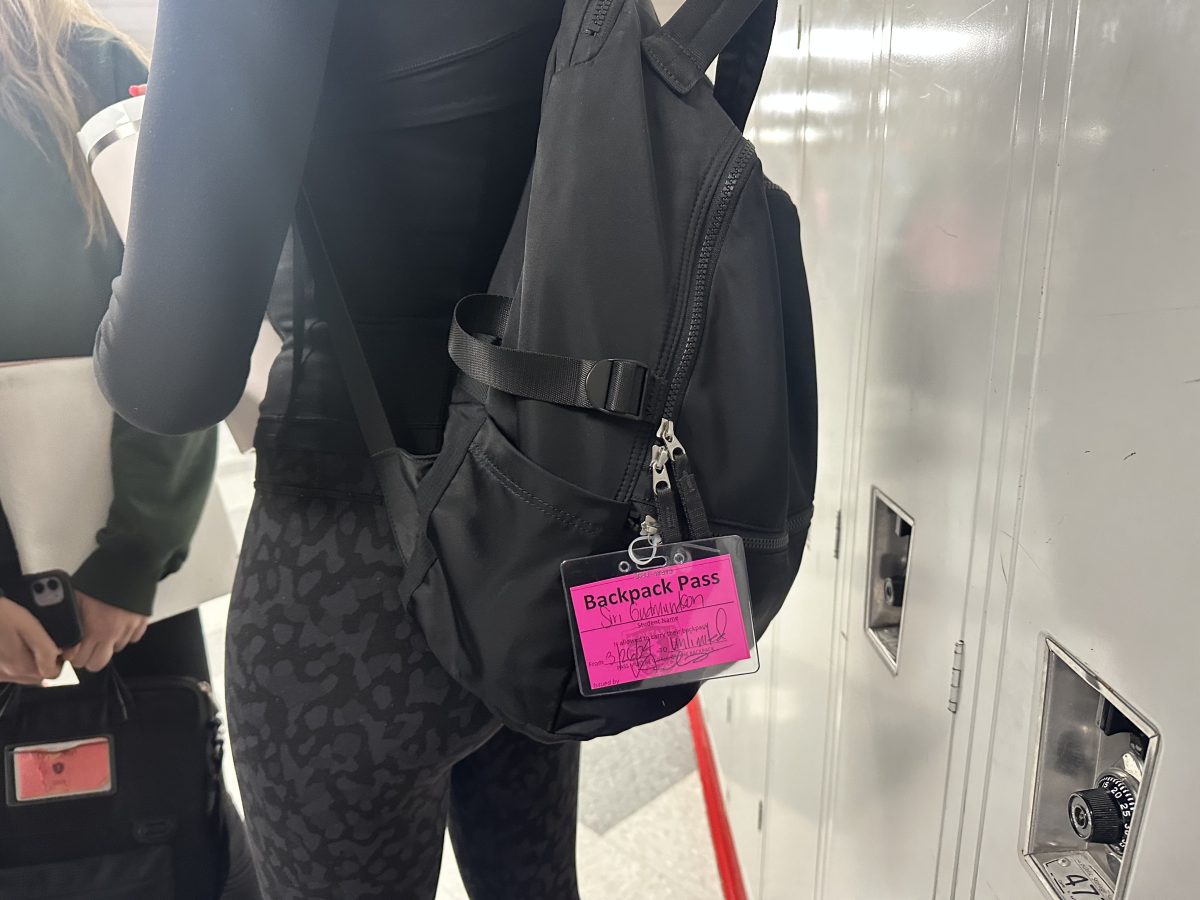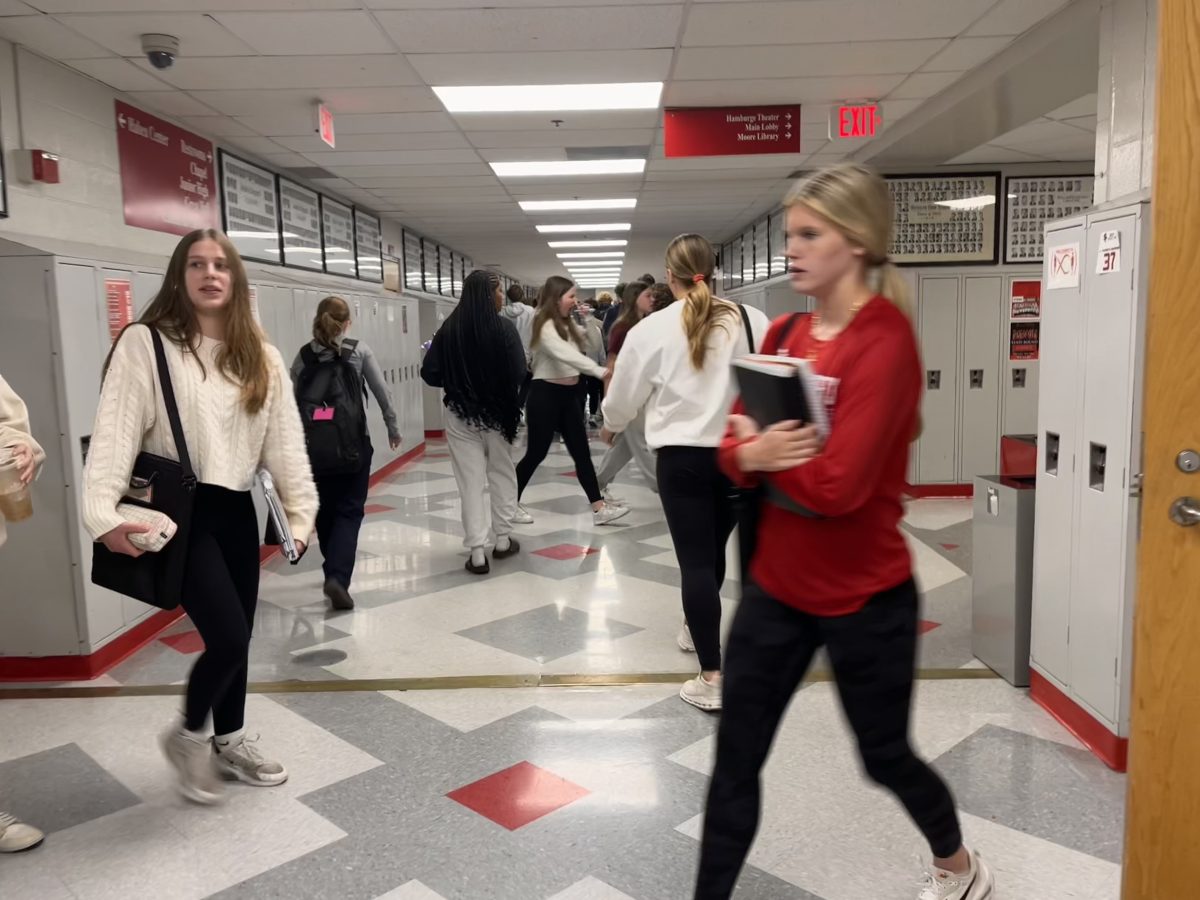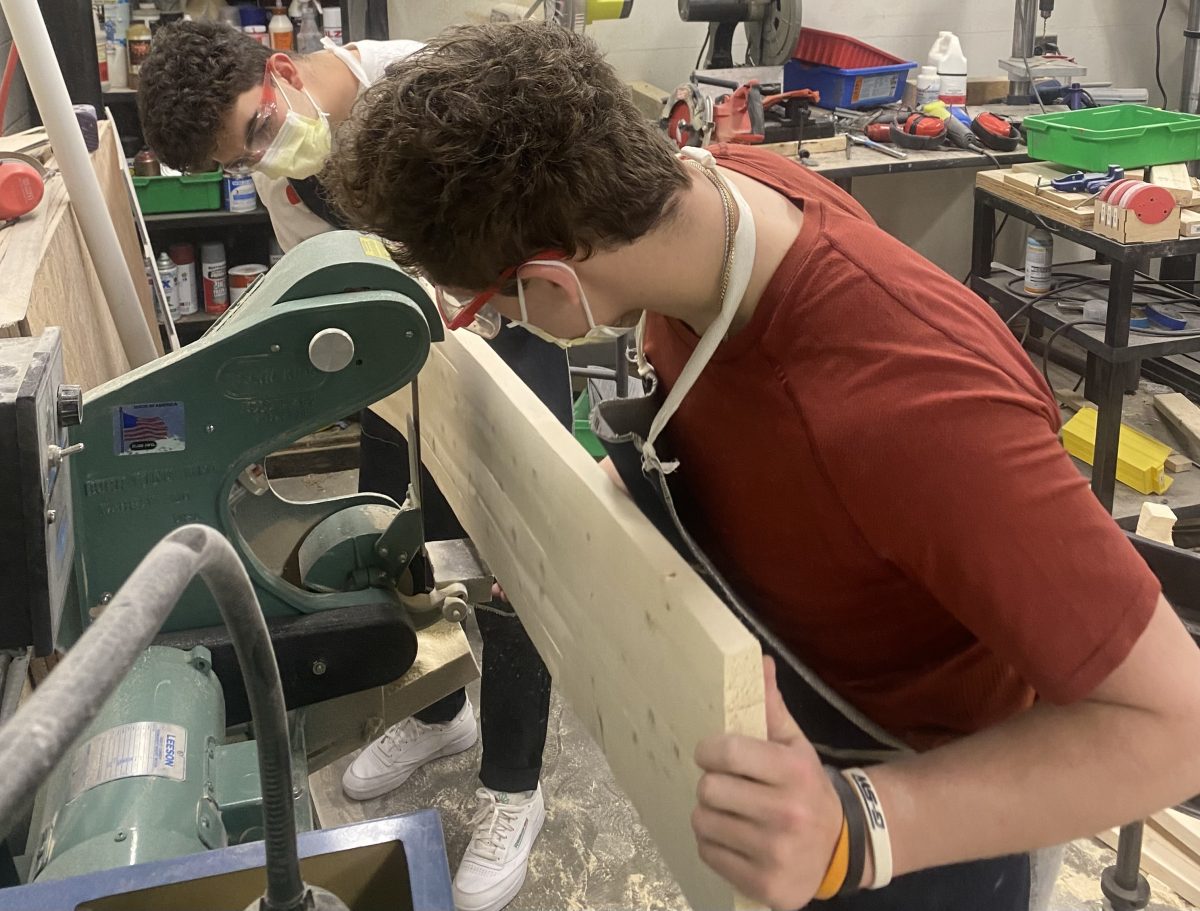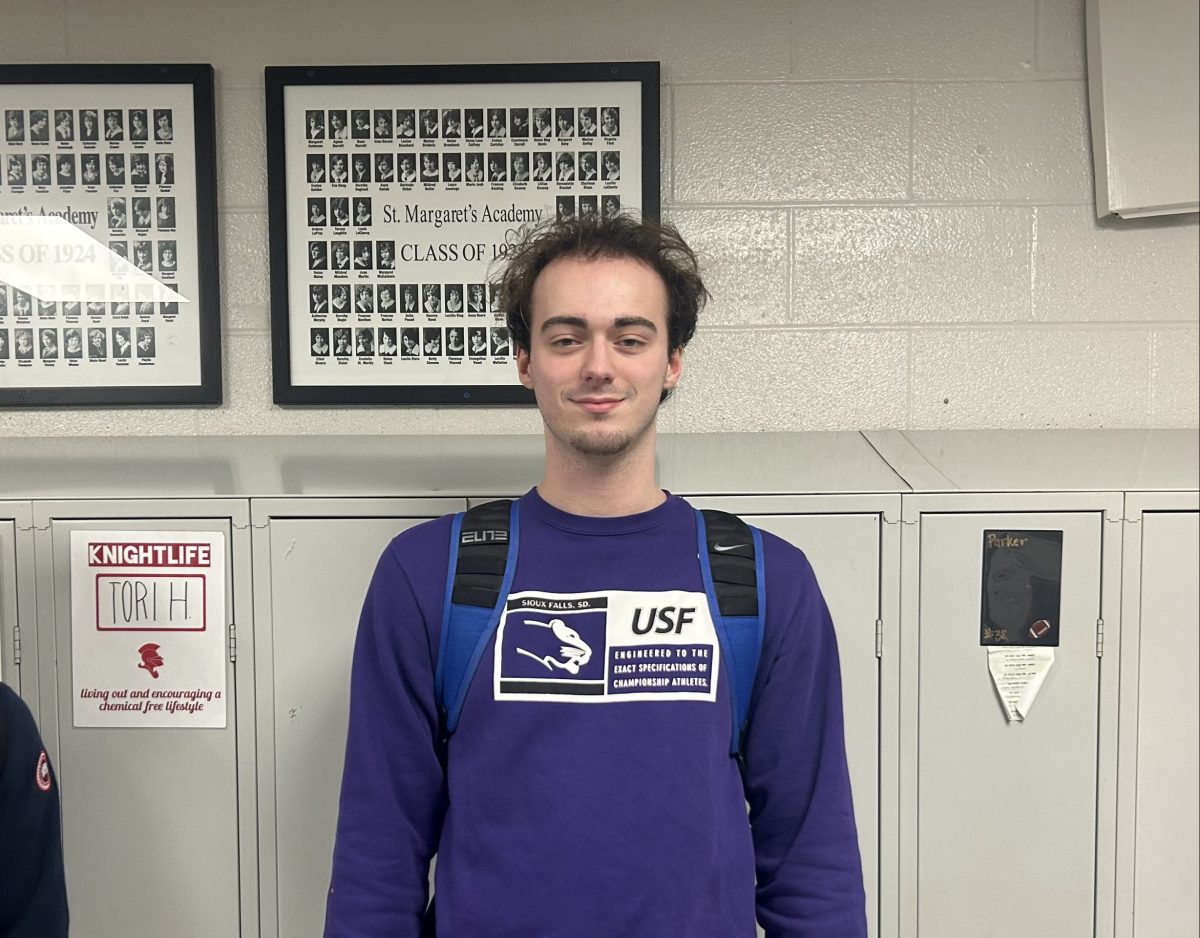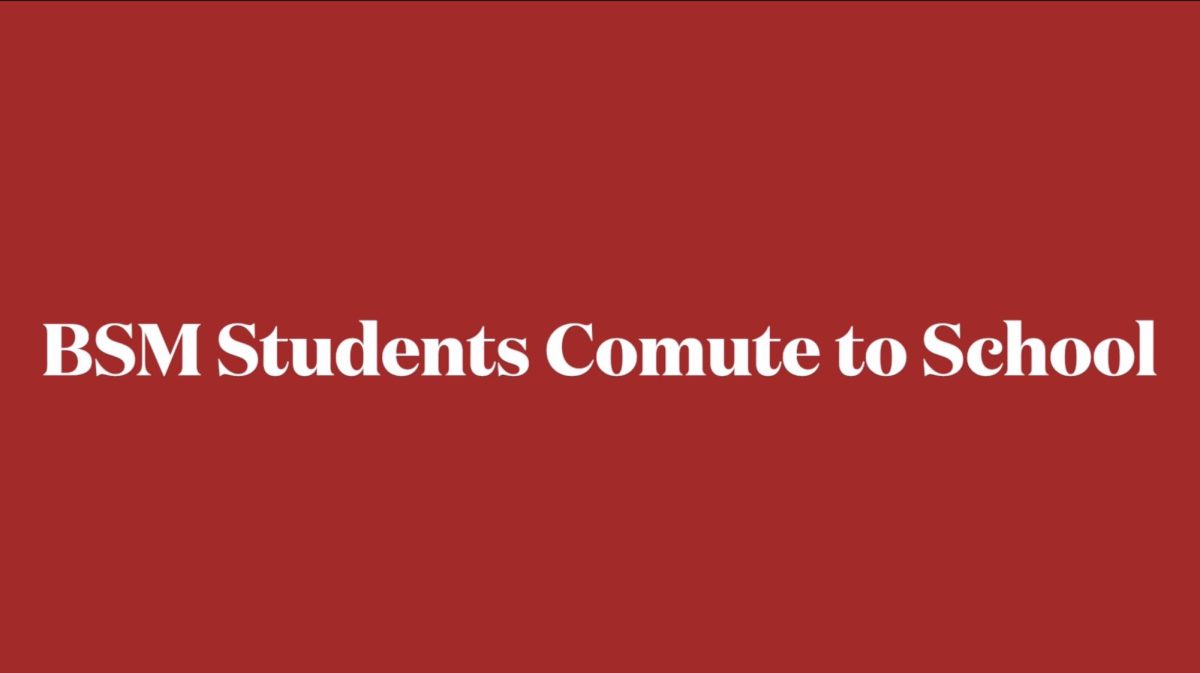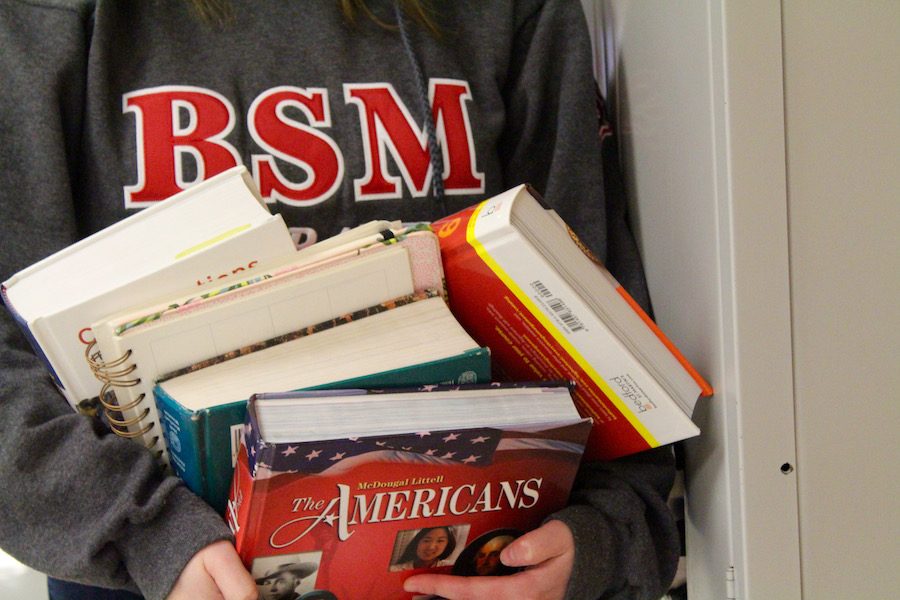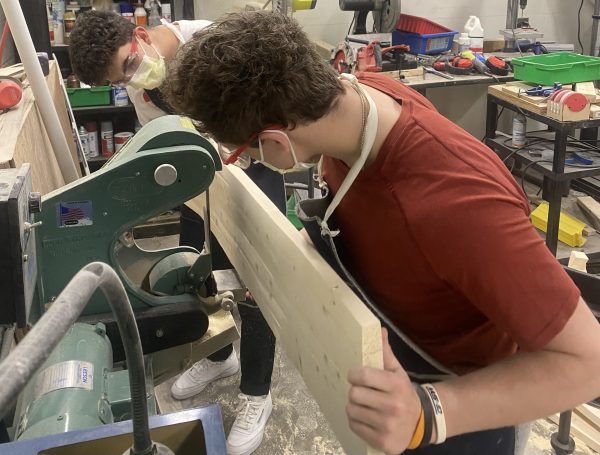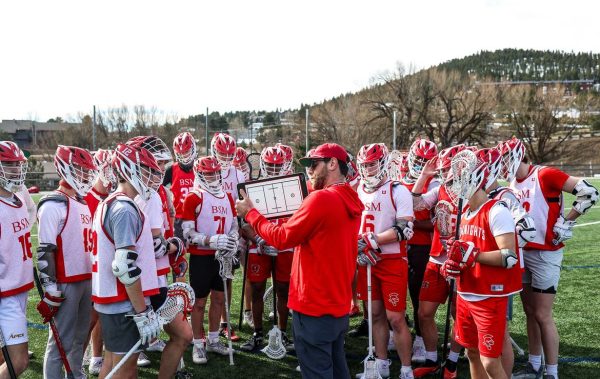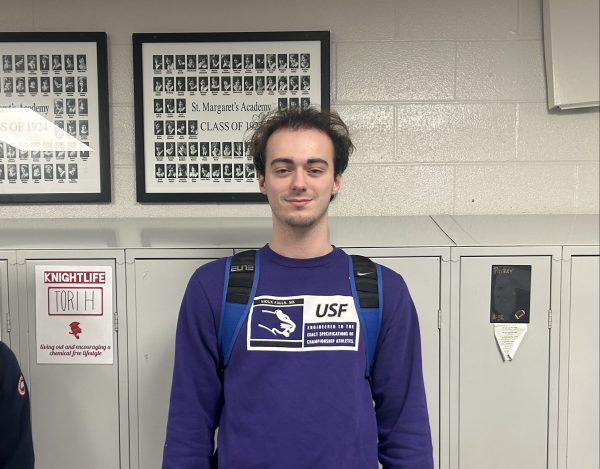Honors and AP classes: furthering education or stress?
There are obvious advantages to taking honors and Advanced Placement classes, but do students consider all of the negatives that come with taking these classes?
Honors and Advanced Placement (AP) courses allow one to learn at a higher level, but it sometimes comes with the cost of late night studying, hours spent on homework, intense stress and less time with friends. Conventional wisdom is that advanced classes help students to better prepare for college, but one may wonder if it’s worth it.
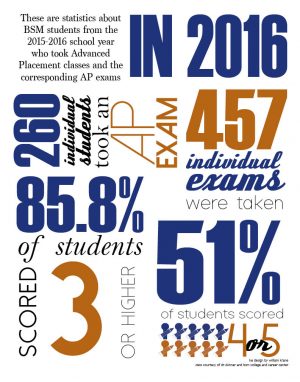
AP and honors classes are helpful tools and a great experience for many students. These courses cover more material and allow the opportunity to expand a student’s passion about a variety of topics. “You move at a faster pace, you do a lot more labs [and there is] a lot more critical thinking, so you are more prepared for college,” science teacher Ms. Jennifer Roushar said.
AP classes push more material onto students with stricter deadlines, thus it increases the pace. Some AP courses allow classes to divert more time to do additional, in-depth learning with subjects that are interesting or give a significant educational experience. However, some are on a tight schedule, so there is no room to explore other topics students may find appealing. “AP government has specific things we need to get in by the end of the year, where the regular government class can spend more time on topics that kids may find interesting and less time on topics that may be a bit drier,” social studies teacher Mr. Jeff Fix said.
AP students have an opportunity to earn college credit at the end of a course. Even though Honors classes don’t offer that option, students look to them as a way to develop better skills and to delve deeper into their interests.“The higher level teaches the material in a more in-depth manner, and it just goes beyond the regular curriculum,” sophomore Sydney Johnson said.
Advanced courses develop educational skills with critical thinking and real-life scenarios. Also, because of their higher workload and extra challenges, they force students to work on their time management skills that come with balancing all of their homework along with their lives outside of school.“I feel like you learn a lot by taking harder classes. It teaches you to handle your workload better,” junior Lorenzo Cerda said.
Due to the faster pace and higher levels taught in Honors and AP classes, students sometimes see themselves sacrificing time with friends to finish all their work on time. These classes can cause a student to miss out on social events, so many students have to learn how to organize their social life, sports, and school better in the future. Even with good organization, sometimes it all can be too much. “I didn’t go out on Halloween because I was too busy doing homework,” freshman Nadya Mojica said.
Advanced classes not only make one’s social life more difficult, they make it harder to try new activities. BSM offers a wide variety of extracurricular activities which gives students the chance to try an assortment of sports and clubs. In college, one can’t just join a sport to try it out; thus, BSM offers such opportunities in high school. However, honors and AP classes can prevent students from trying new activities and exploring their interests. Students in these classes have to juggle many different aspects of their life, and they don’t always have the time to try new things. “I feel like there’s more stuff I would do, but I just don’t have time,” junior Erin Krotz said.
Students are taking more challenging courses for many reasons. When the time comes to pick classes, some students feel an intense peer, teacher and parent pressure to take classes they don’t necessarily enjoy just for an appealing transcript. Many students also put extreme pressure on themselves to take hard classes and some put even more stress on themselves so that they can excel in them. “At BSM, there’s a lot of pressure to take harder classes,” Cerda said.
Pressure doesn’t just come from the students themselves, though. Seeing other students, friends, or older siblings succeed impels them to do better. Even colleges and teachers can be stressors. “I think increasingly students are pressured, period. I think that the pressure is coming down from the college level to the high school level, and it’s pushing kids to get that resume that’s gonna get into that school, regardless of whether it’s a good fit for them,” English teacher Ms. Maura Brew said.
Many students are ready and prepared to take a honors or AP class. However, some students who may not be prepared to take difficult courses do so anyway to impress colleges, which can end up being more harmful than beneficial. “There are some kids who want to be in an honors class because of the appearance it gives, but it might not be the right class for them, [and] then their confidence goes down. If being in a regular level class gives you a boost in your confidence and helps you to really understand the fundamentals, then that’s where you should be. You shouldn’t push yourself to be in an honors class if it’s not right for you,” math teacher Ms. Mary Seppala said.
Even though there are many differences between accelerated and regular classes, teachers of all levels try to challenge their students to understand and interpret information in a variety of different ways and use it in real world situations. All teachers want their students to succeed, no matter what class or what level. “The goal of the honors classes is the same as the goal for all classes, which is to stretch students, challenge them to a higher level thinking as well as improve their skills in analysis and expression. The goal is the same; the levels at which they operate is slightly different,” Brew said.




